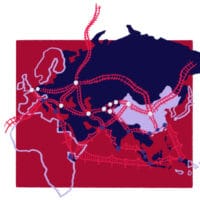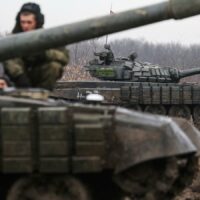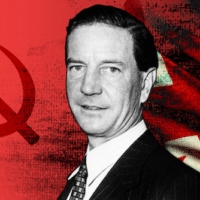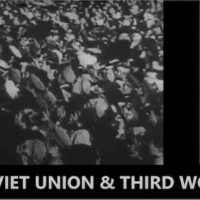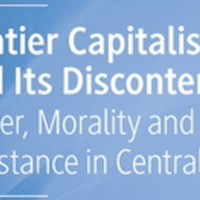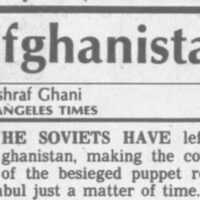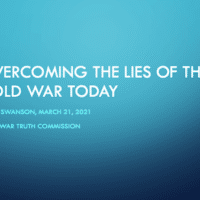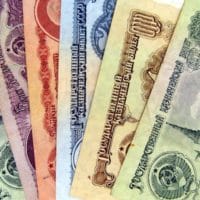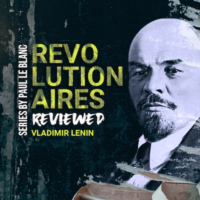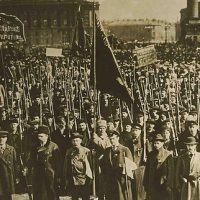-
Gorbachev and his legacy must be viewed in context
When a life is lauded by both Henry Kissinger and Boris Johnson, the deceased must have done something very wrong.
-
Cheng Enfu: Economic development in socialist countries–great achievements and future prospects
In the following, I will address a few potentially controversial points on the subject of economic development in China and the Soviet Union, as two representative examples of socialist countries, in response to the misconceptions prevailing in the world. – Cheng Enfu
-
Ukraine as the ‘Geopolitical Pivot’: The U.S. Grand Strategy 1991-2022
As we write these notes at the beginning of March 2022, the eight-year limited civil war in Ukraine has turned into a full-scale war. This represents a turning point in the New Cold War and a great human tragedy. By threatening global nuclear holocaust, these events are also now endangering the entire world. To understand the origins of the New Cold War and the onset of the current Russian entry into the Ukrainian civil war, it is necessary to go back to decisions associated with the creation of the New World Order made in Washington when the previous Cold War ended in 1991.
-
The U.S. is preparing war with China and Russia at the same time
In the strategic vision of the U.S., Russia should be disarmed to become part of Europe as a “sidekick” and a bridgehead to contain China, the “more dangerous enemy” as Kissinger described it.
-
Kim Philby remembered: A traitor to his class
Kim Philby, born on January 1st, 1912, is one of the best known double agents of the Cold War era.
-
Red Star Over the Third World w/ Vijay Prashad: Lessons of Soviet History, Part 2
Russia’s October Revolution in 1917 and the rise of Soviet power reverberated across the world, from Latin America to Africa to Asia, and Middle East – that part of the world that lived under the ravages of colonialism and under-development.
-
Central Asia’s neoliberal tragedy
Resilience cannot be restored without public spending, but the rentier business plan is to minimize taxes by shrinking the government, especially by privatizing its public utilities and other functions to create opportunities for charging monopoly rents, and to oppose taxation of economic rent.
-
U.S. defeat in Afghanistan—A contrast with the Soviet experience
The U.S. has been defeated today in Afghanistan not by a super power with an advanced military, but by a rag-tag army of fanatical locals who perfected and consolidated their fanaticism under U.S., Saudi and Pakistani tutelage in the 1980s to fight the Soviets.
-
Review of Keti Chukhrov – ‘Practicing the Good: Desire and Boredom in Soviet Socialism’
As the title reveals, Chukhrov is particularly interested in two aspects of Soviet socialism: desire and boredom. For a libidinally conditioned capitalist subject, socialism as a non-libidinal economy appears boring and unsexy.
-
Lefebvre and Althusser: Reinterpreting Marxist Humanism and Anti-Humanism
Since the October Revolution, Marxism has experienced almost as many crises as capitalism itself. Meltdowns of capitalism usually come as little surprise to savvy Marxist theorists but economic crises are one thing; economic crisis plus a global pandemic is something else again, beyond an everyday capitalist norm, more akin to the political-economy of wartime. Pandemic, like war, threatens not only life and limb, but also solidarity and tender acts of human togetherness.
-
U.S. defeat in Afghanistan—A contrast with the Soviet experience
As`ad AbuKhalil says Western media never regarded the U.S. involvement for what it really was.
-
A Cold War re-education in 8 minutes
Remarks at the Cold War Truth Commission
-
‘Ecological Leninism’: On waging war against the common cause of Corona and the climate crisis
A ferocious polemic by Andreas Malm, written as the worldwide lockdown took hold, summons the imagery of Soviet war communism to impress the urgency of our predicament.
-
New Article Published: Does socialism really lead to economic failure? The USSR and COMECON Eastern Europe before 1989
Based on important new figures from the Maddison Project Database, it refutes the claim that the countries of Eastern Europe were economic failures when they were still ruled by (ostensibly) communist regimes.
-
Vladimir Lenin 150
To marks the 150th anniversary of the birth of Lenin we’re sharing the latest installment of Paul LeBlanc’s series Revolutionaries Reviewed, on Vladimir Lenin – a central leader of the Russian Revolution of 1917, which overthrew tsarist rule and attempted to bring about a new socialist society.
-
Either socialism will defeat the louse or the louse will defeat socialism
The International Monetary Fund (IMF) says that the Great Lockdown, which has no end date, could very well lead to a loss of $9 trillion to global Gross Domestic Product over the entirety of 2020 and 2021; this number is greater than the combined economies of Japan and Germany. This scenario, the Fund’s managing director Kristalina Georgieva admits, ‘may actually be a more optimistic picture than reality produces’.
-
Soviet Archaeology in Theory and Practice
A Review of Ancient Irrigation Systems of the Aral Sea Area: The History, Origin, and Development of Irrigated Agriculture by Boris V. Andrianov, and Soviet Archaeology: Schools, Trends, and History by Leo S. Klejn
-
Dossier 13: The new intellectual
These two matters—the battle of ideas and the new intellectual—take up the first two parts of this dossier. The third part enters a brief discussion of our political context and offers a map of our concerns and our research. We look forward to your response to our invitation to a dialogue.
-
Zone of storms
In the five essays presented in October 1917, renowned radical political economist, Samir Amin, pushes far beyond the immediate necessity of emphasizing the historical weight of October, and launches, into an ambitiously broad analysis of the trajectory of twenty first-century socialism.
-
The stormy petrel
In Moscow there has been something like a revival of interest in the immortal Alexei Maximovich Peshkov, who called himself Gorky, the Bitter One. Even Gorky’s portrait, which had been removed from the title page of the influential literary magazine Literaturnaja Gazeta, is shining there again next to Pushkin’s.



